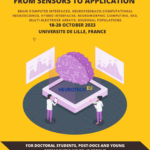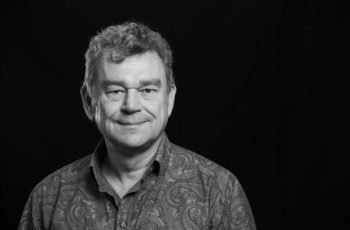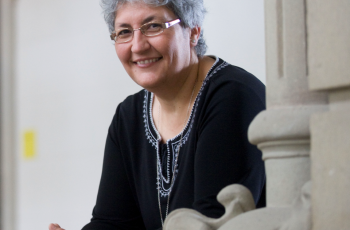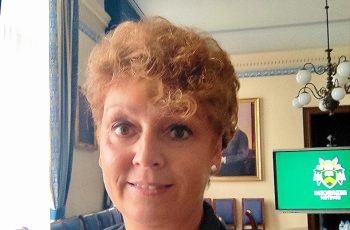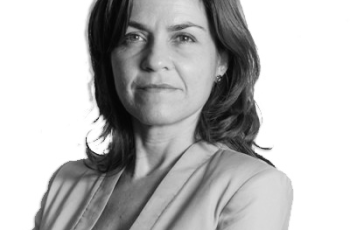In the faces of NeurotechEU series, several people in the NeurotechEU alliance are interviewed to learn about their experiences and insights.
Delving into the fascinating world of neuroscience, we had the privilege to sit down with Professor Zoltán Molnár, a distinguished neuroscientist from the esteemed University of Oxford. Recently, he delivered three compelling lectures at the University of Debrecen, shedding light on the critical significance of early brain development. We explored many topics, from research to the enriching life at Oxford, and the opportunities he envisions within the NeurotechEU initiative.
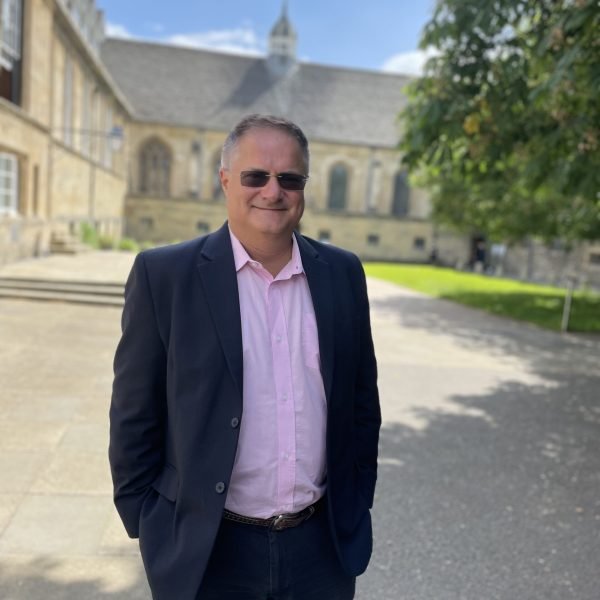
Seize this opportunity as these connections can profoundly benefit your future, and these friendships can endure a lifetime.
Zoltán Molnár
You have undoubtedly forged an immensely successful career. How did a young Hungarian student find himself at Oxford during the transformative 1980s? What obstacles did you surmount to arrive at this remarkable juncture?
To the casual observer, it might appear as if my path unfurled effortlessly. Yet, I also have weathered countless setbacks and repeatedly confronted disappointment. My successful career is due mainly to the calibre of my parents and the mentors I encountered. We must not forget that there are individuals in everyone’s life who greatly influence them. Nagykőrös High School provided an exceptional education, complemented by many inspiring teachers. Subsequently, at the esteemed Albert Szent-Györgyi Medical University in Szeged, Professors György Benedek and Mihály Bodosi offered invaluable guidance. Upon my arrival at Oxford, Sir Colin Blakemore became my supervisor, and I received tremendous support from him. I want to give back all of this to the next generation.
At what point did you have the epiphany that the intricacies of the brain and the field of neuroscience are far more exciting than you initially anticipated during your student days?
I have always been interested in neuroscience, and to this day, I find it fascinating that I can explore such a complex system. Several defining moments led me down this path, which I still recall. As a young student, I regularly read articles in the magazine “Természet Világa” (World of Nature). I watched the scientific news program called “Delta,” as well as live lectures by János Szentágothay about the brain on Hungarian television. It was during this time that I began to admire neuroscience. Later on, I was drawn to neurosurgery and the ability to diagnose and heal as a practising clinical physician. However, this slowly changed when I received the scholarship.
When and why did you decide to choose research instead of pursuing a medical career?
Even after the scholarship and my completed PhD, I intended to stay in the field of neurosurgery. However, I was then awarded an additional three-year scholarship from the Medical Research Council, and even before concluding that, another scholarship followed at Merton College. It was an opportunity too great to turn down. I firmly believed that the knowledge acquired through research would profoundly enhance my clinical practice. As my success in research grew, fate intervened, I met my wife, Nadia, and it became clear that I would dedicate myself fully to research.
Neuroscience is a fascinating, rapidly evolving field, and you also have numerous commitments at the university. Do you manage to unwind or do you “take your work home”?
What greatly helps is the diverse nature of our work. Throughout the day, we must seamlessly transition between various roles, switching from researcher to instructor or administrator and becoming family members by the end of the day. I believe genuine success is rooted in one’s ability to adapt swiftly to the ever-changing dynamics of the day.
I deliver lectures and conduct practical sessions for 160-200 students in the mornings. Additionally, I facilitate small-group tutorials in my teaching room at St John’s College twice a week in the afternoons.
A pressing concern for the future is how we can ensure that medical students are guided by educators who remain actively immersed in research and can share the latest findings with them. However, it’s not just about sharing the results but also the doubts. After all, certain aspects of our present teachings may not necessarily stand the test of time. It will be up to today’s medical students to judge that. Critical thinking is crucial in this profession, as we need practicing physicians capable of reshaping the future of medicine.
If you weren’t a neuroscientist, what profession do you think you would enjoy?
I would have enjoyed being a clinical doctor. My brother, Béla, is an ENT specialist, and together with my brother Elek – also a neuroscientist – we sometimes envy him.
I wanted to try myself as a sports reporter as well. Once, while attending a tennis match at the Queen’s Club, I sought shelter from the rain under the awning. That’s where I met John Inverdale, a BBC sports commentator. We talked, and I mentioned that I would aspire to be a sports reporter if I weren’t a neuroscientist. I told him that I loved tennis so much that one of the exam questions for my second-year medical students would be about the brain areas activated in a tennis player when returning a serve. The following day, many people contacted me to tell me about John’s recounting of our meeting with Peter Fleming on the BBC. Unfortunately, he mentioned the exam question as well. I had to change those urgently. There was a lot of amusement in the dean’s office when I told them why! The moral of the story? I shall never again reveal my intentions to any BBC reporter.
What advice would you give to students at the University of Debrecen? What should they do to achieve similar successes?
Firstly, be assured that you are in an ideal place. Recognise how lucky you are. Many seem to fail to grasp the exceptional quality of education they receive here. My second piece of advice is to not to be passive. Everyone decides for themselves what they want from life. If a subject captivates you, do not hesitate to immerse yourself further. Hungarian universities progressively embrace internationalization, affording opportunities to connect with international students, engage in conversations, and exchange experiences. Seize this opportunity as these connections can profoundly benefit your future, and these friendships can endure a lifetime. Today’s generation has much more possibilities than we had back in the day. They can explore the world, learn languages – it’s essential to enjoy the fact that the world has expanded!
What opportunities do you see within NeurotechEU?
NeurotechEU offers a wide range of international education and research opportunities at all levels. The significance of digital technologies is steadily increasing in research, patient examination, and monitoring. NeurotechEU’s partner universities are keen on exploring the potential benefits these technologies offer in healthcare and the tracking of patients beyond hospital settings.
Using smartphones or smartwatches equips us with a wealth of information that could be utilized in diverse ways, be it in the pharmacological treatment of neurodegenerative diseases or advancements in developmental studies. Examining the impact of environmental factors during pregnancy or early infancy holds substantial importance in understanding future conditions, albeit requiring decades of research to unveil precise causal connections. One such topic was recently addressed in a NeurotechEU webinar that I organized and is accessible online.
In the “Faces of NeurotechEU” interview series, whom would you prefer to read about, and what would you ask them?
I highly admire Professor Robert Harris from the Karolinska Institute. Not only does he play an active role in NeurotechEU, but his articulation of the project’s potential challenges impressed me immensely.
Universities are interested in having the best professors and students and excelling in various subjects. However, university education still heavily relies on traditional lecturing methods, resembling those employed centuries ago, despite the availability of alternative possibilities.
NeurotechEU has the potential to revolutionize the education of future researchers who are accustomed to collaborating within international teams spanning multiple countries. Regardless of geographic location, the internet allows individuals to access research on global and international topics. Universities must keep pace with this trend and adapt. Professor Harris possesses remarkable insights in this regard. I am intrigued to learn his perspectives on how education will evolve in the next 50-100 years, as I firmly believe that significant transformations lie ahead.
By: Krisztina Csiba, University of Debrecen

